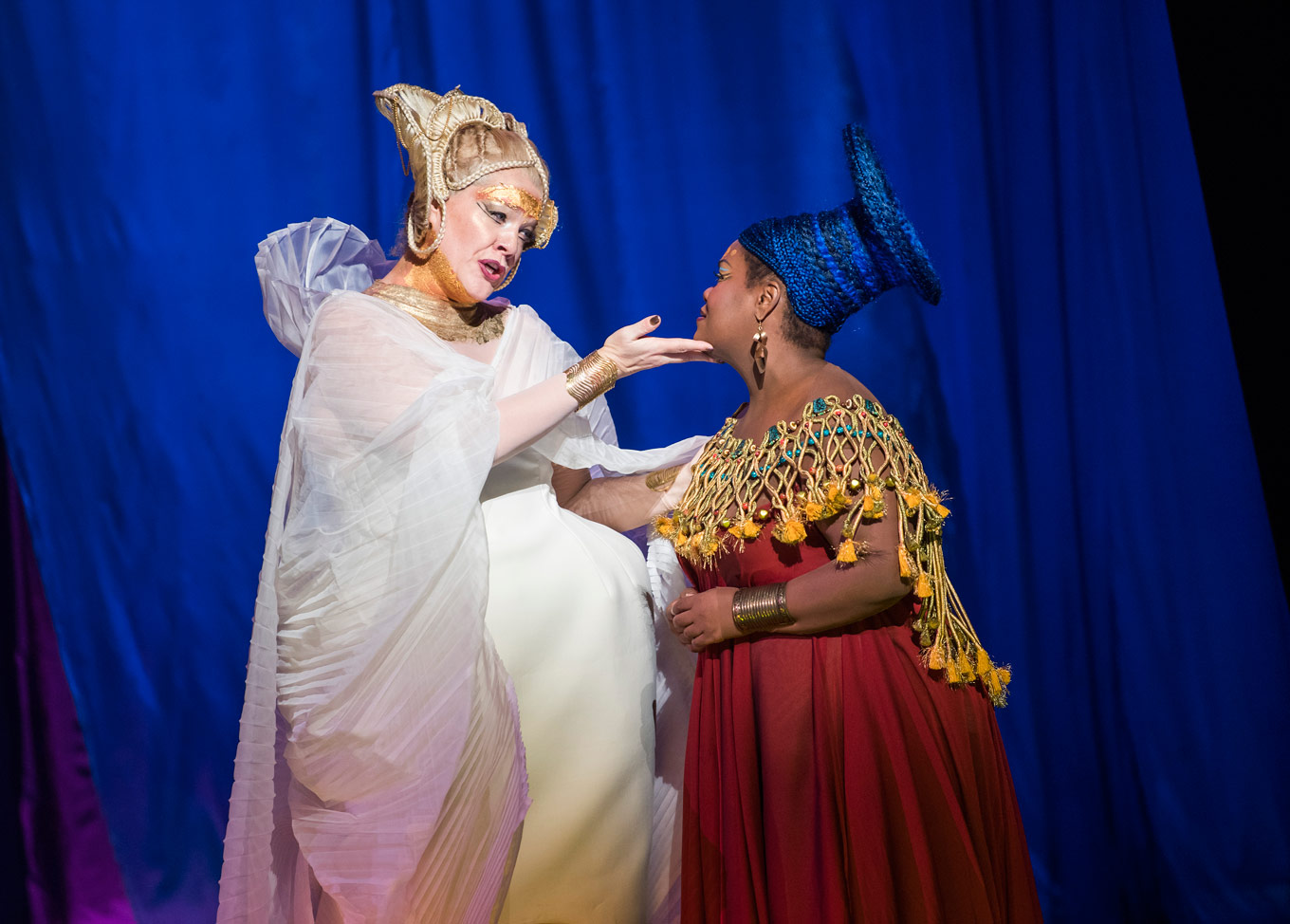
Stellar singing & curious costumes in ENO's Aida
ReviewENO opened their 2017⁄2018 with a beautiful, heartfelt production of Verdi’s masterpiece, Aida. This show always surprises me - it’s never quite what you expect. The music isn’t typical of Verdi’s work and neither is the story. The atmosphere of the work is otherworldly and strangely stark, despite the presence of the requisite bombastic full chorus moments. This production didn’t disappoint. Director Phelim McDermott never wasted an opportunity to fill the hall with beauty, both visual and emotional. The production was one of contrasts - sleek lines against lush textures, bright against dark, and the delicacy of love against the rigid world of military might.

From the very beginning, Aida (American soprano Latonia Moore) absolutely stole my heart. She was incredibly expressive, both in her acting and her singing. Every emotion seemed to come from somewhere honest and deep within her. She easily handled the challenges of the role, bending the extremities of range to her emotional expression. The top of her voice was particularly astonishing, unfolding with a lyrical beauty that was stirring to hear. Her lover Radamès was sung with equal beauty by Gwyn Hughes Jones with a bright tone production that seemed almost too easy. He complimented the lyricism of his singing with spectacular flexibility at the top of his range. He was also a heartfelt performer, especially in a role that could so easily become repetitive and difficult to believe. This pair carried us through a show which could become long and disjointed, powerfully portraying the struggle they both faced. Musa Ngqungwana was also very notable as Amonasra, father of Aida. He was commanding on the stage, drawing us into the world of his character. His voice was beautiful to listen to, regal and flexible in its colouring.

I was less impressed by mezzo-soprano Michelle DeYoung in the role of Amneris. She was mostly elegant on stage, commanding in the role of the pharoah’s daughter. However, I could never quite work out whether she was meant to be wicked or conflicted - it was hard to tell whether this was due to her performance or flaws in the libretto. Her singing, too, left something to be desired. It was easy to hear how spectacular her voice is, and there were moments where we got the true colour of the instrument. However, the sound was overdarkened for my taste, and I found it distracted from the natural beauty of her tone.

This production was very beautiful from a visual perspective. The sets were colossal, drawing the audience into a strange fantasy world. It was full of stunning tableaus, especially those that included the whole cast, the chorus and the wonderful acrobatic ensemble, Mimbre. The lighting design was particularly clever, illuminating the production in a way which seemed almost symbolic. For me, the most stunning moment of the whole production was the strange ending. It was almost rhapsodic in its beauty and tenderness. Moore and Hughes Jones were truly touching to watch and the simplicty of the staging allowed us to focus on the intimacy of what passed between them.

My only true complaint was the incongruity of costuming throughout the show. The characters never looked like they really belonged on the same stage together. This was true within scenes, but also across the whole show. Particularly, Act I Radamès looked really strange next to Aida, who in turn was very disjunct near Amneris. I particularly disliked the militaristic costumes which heavily featured at the end of act I. They looked a little like they’d gone to the wrong party, particularly the King, who looked like a washed up version of David Bowie.
Aida runs at English National Opera through December 2. For details and ticket information, follow our box office links below.


Comments